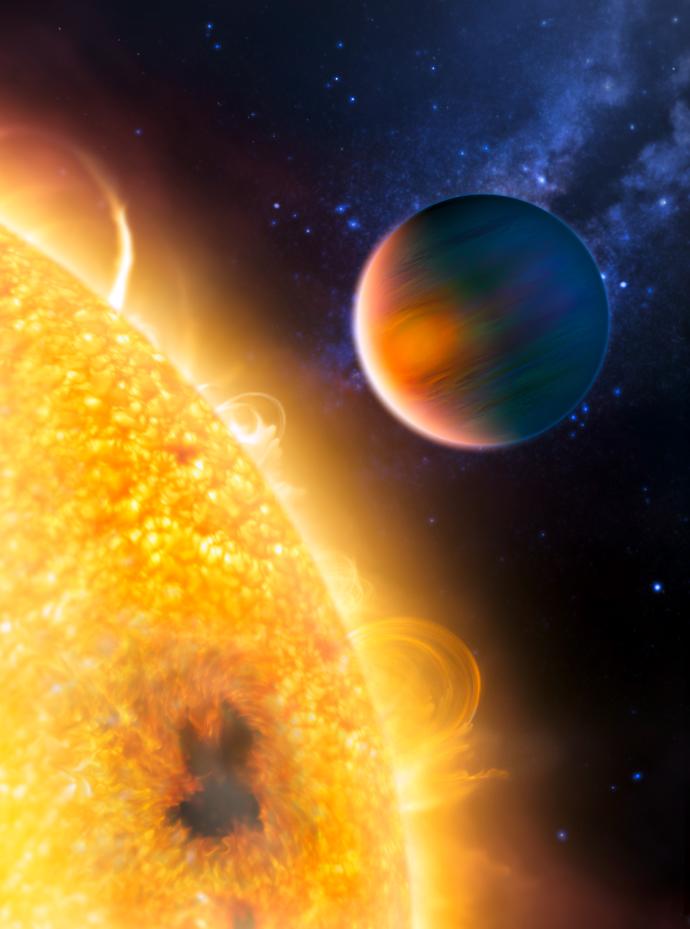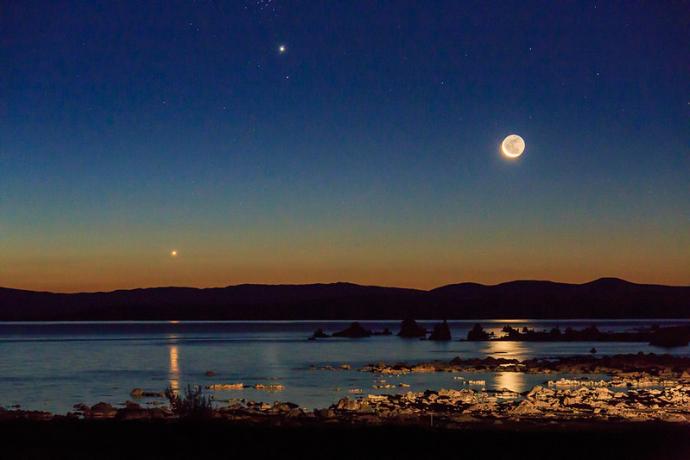Venus
Venus is the second planet from the Sun. Like Mercury, Earth and Mars, Venus is a terrestrial planet. It has a solid surface and is mainly made of rock.
Uranus
Saturn
Saturn is the sixth planet from the Sun and the second largest planet in the Solar System.
Neptune
Neptune is the furthest planet from the Sun. About 30 times further away than the Earth is. It is a blue giant planet like Uranus.
Mercury
Mars
Jupiter
Jupiter is the fifth planet from the Sun and the largest planet in the Solar System.
Exoplanets
An exoplanet is a planet which orbits a star that is not our Sun. The name exoplanet comes from 'extra-solar planet'.

Earth
Understanding the Solar System
After the invention of the telescope, everything changed for astronomers. They were now able to see many more objects in the night sky. These faint objects were either small, or far away, or both!

